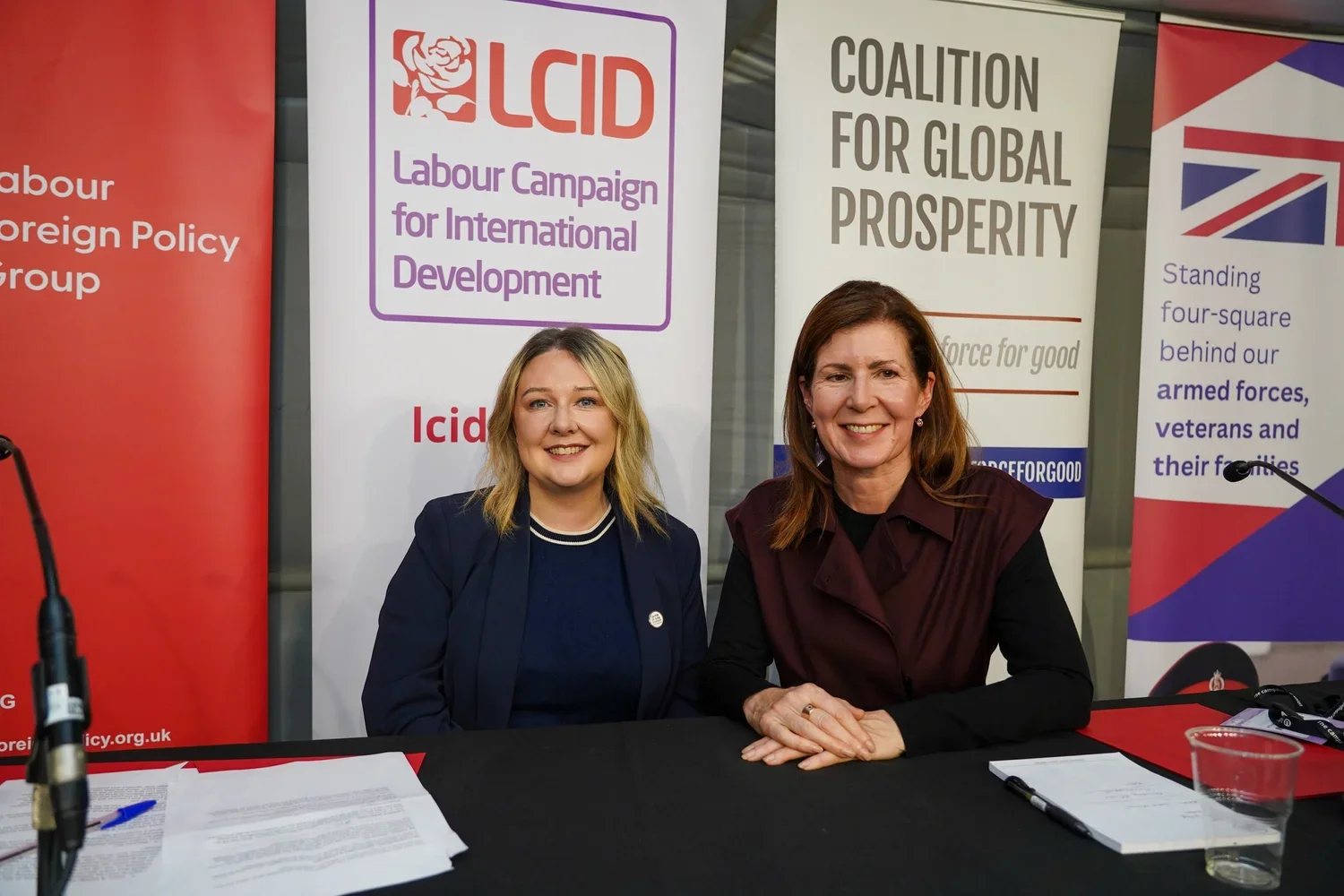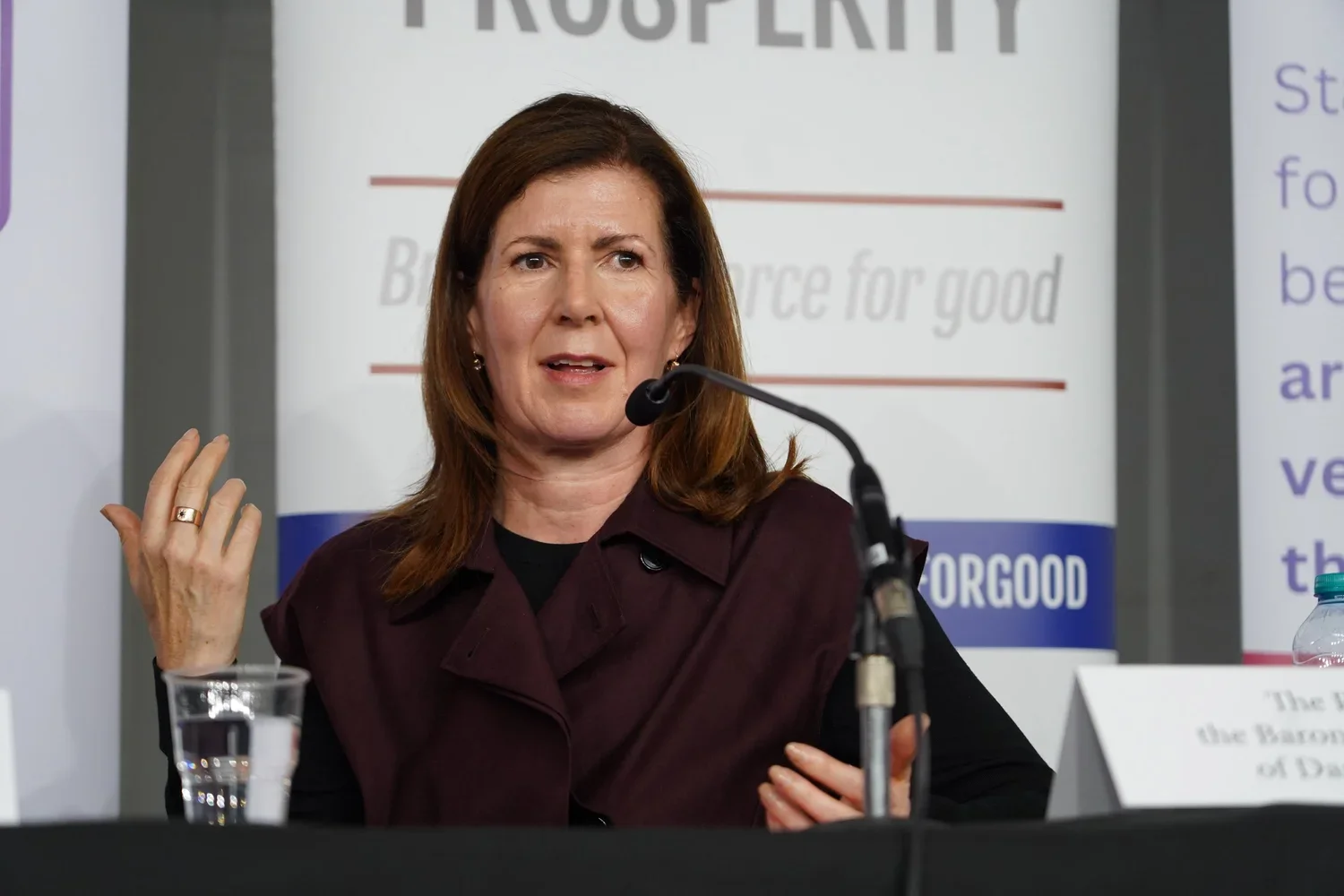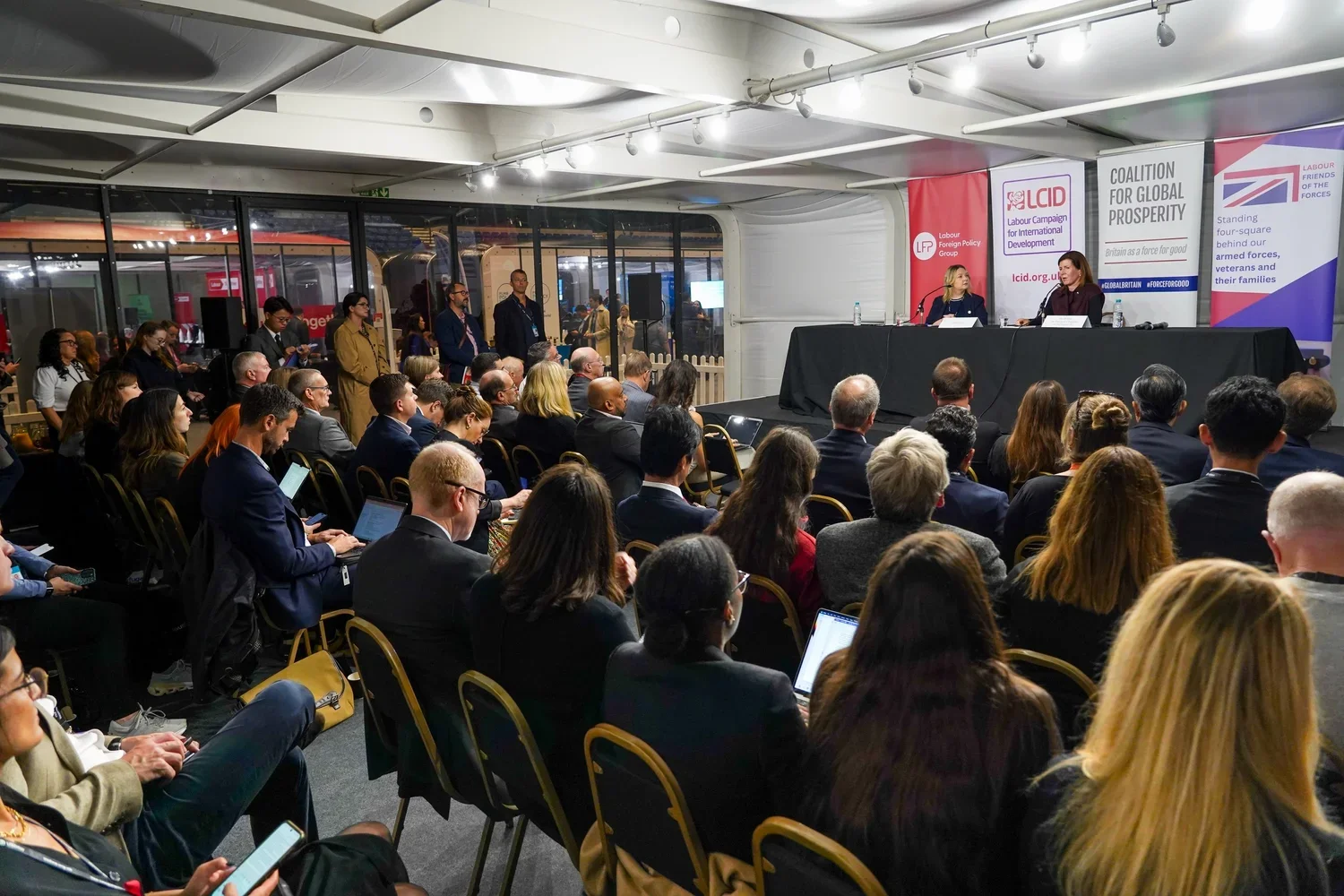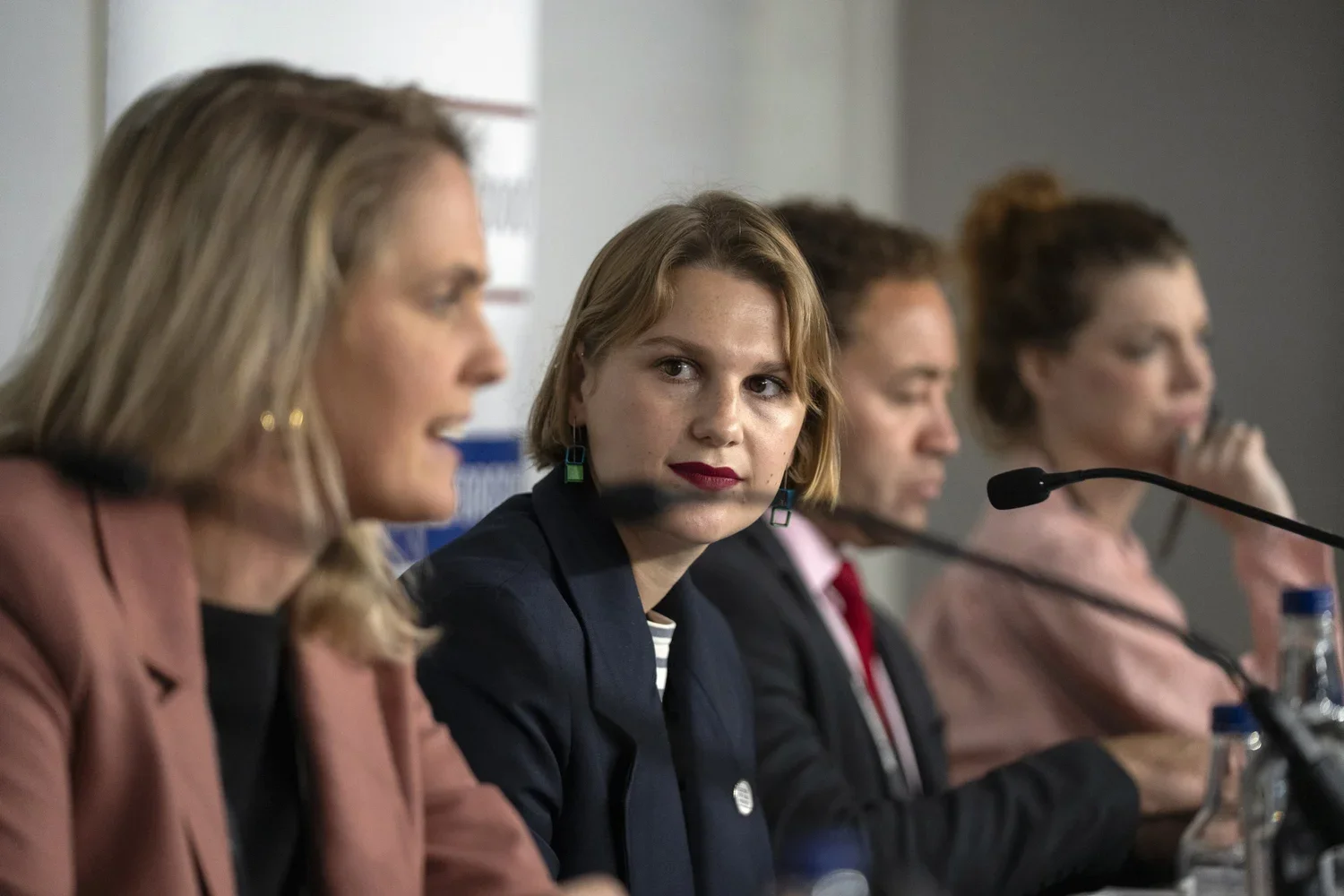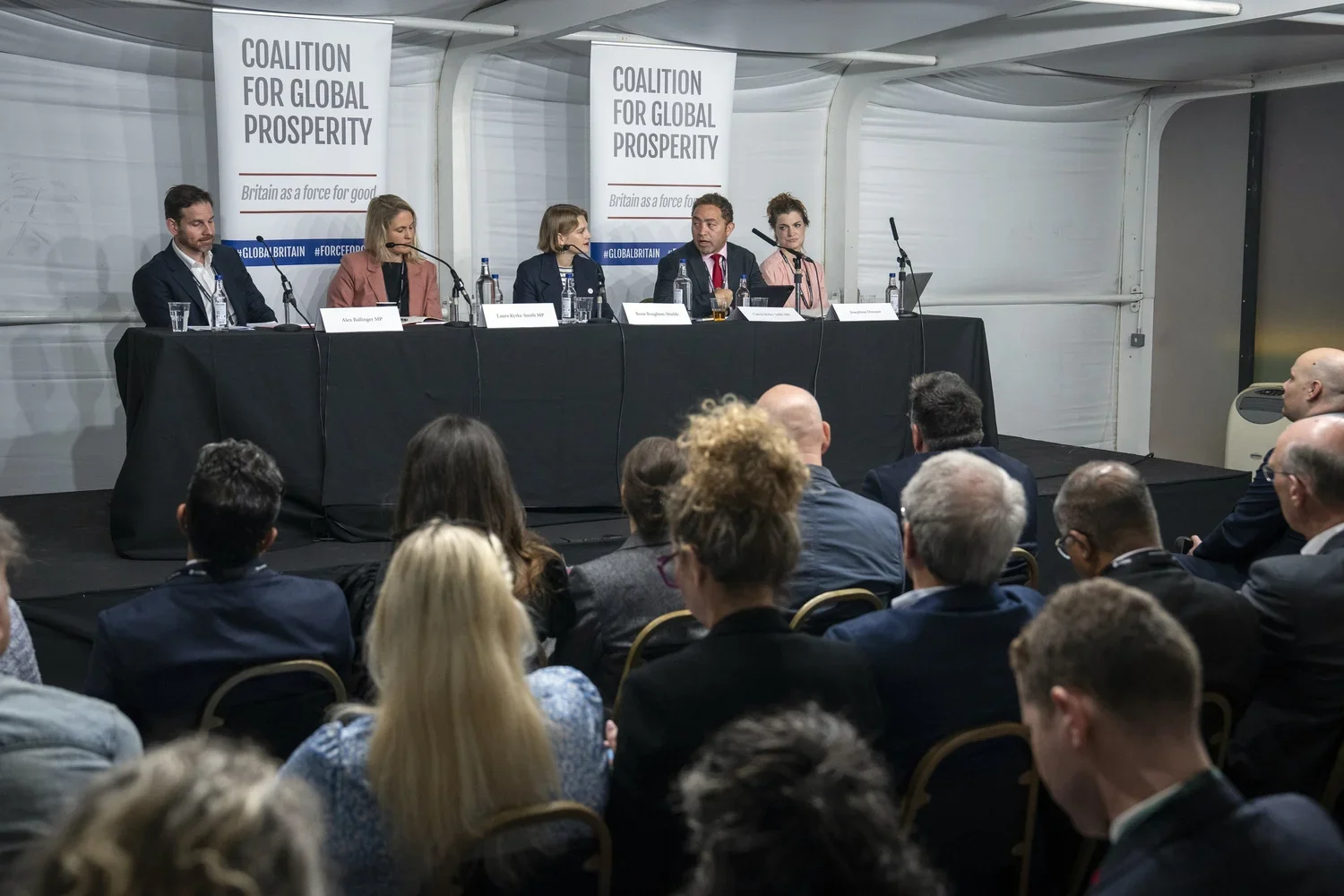Labour Party Conference 2025
At this year’s Labour Party Conference, CGP hosted two public panels and one private roundtable, bringing together the Minister for International Development, the Minister for Europe and North America, parliamentarians from the Foreign Affairs and Defence Select Committees, and development partners. The discussions explored the UK’s role in global development amid profound global and domestic challenges.
Our events programme opened with CGP’s annual In Conversation with The Rt Hon Baroness Chapman of Darlington, in partnership with Labour Friends of the Forces, the Labour Campaign for International Development, and the Labour Foreign Policy Group. Chapman spoke on the UK’s evolving development role, particularly during crises and fiscal constraints.
Baroness Chapman spoke powerfully about the humanitarian crisis in Gaza, warning that famine and disease are already realities. She highlighted the UK’s suspension of arms export licences, sanctions on senior Israeli officials, and her frustrations at the ongoing obstruction of aid delivery. With famine declared and disease outbreaks spreading, she stressed that “disease knows no borders” and urged the UK to use every lever to secure humanitarian access - not only to alleviate suffering but also to safeguard Israeli security and support a pathway to peace in the region.
Recognising the reality of a smaller aid budget, Chapman argued that this should drive innovation and prioritise outcomes: conflict prevention, health, and climate resilience - a key call in her recently published chapter in the Fabian Society’s and Labour Campaign for International Development’s Essay Collection, titled: ‘Four Shifts’ in Promising Development. She emphasised that development “doesn’t happen in Whitehall” and called for the leadership of developing countries to be central to decision-making, advocating for listening, respect, and shared learning rather than imposing UK “expertise.”
She criticised spending on refugee hotels as politically unpopular and misaligned with ODA, and is working to redirect these funds to overseas programmes with greater impact on reducing migration pressures. Chapman also stressed long-term investment, enabling countries to manufacture their vaccines, grow industries, educate children, and trade regionally, requiring smarter partnerships between governments and the private sector.
Looking ahead, Chapman highlighted the UK’s biggest opportunities for impact: multilateral investment through the World Bank; innovative finance including insurance and private capital. She also referenced the upcoming Global Fund replenishment, noting that a significant UK announcement is expected soon. Chapman concluded by underlining the importance of celebrating British achievements in international development and rethinking how to communicate the value of international development to the public to retain traction.
Our second panel of the day, Defence Beyond the Military: How Development Builds Lasting Security, held in partnership with the Mines Advisory Group (MAG), explored how defence and development are two sides of the same coin - both essential to the UK’s national security and global influence. In an era of geopolitical competition, climate-driven instability, and protracted humanitarian crises, panellists emphasised that Britain must align defence and development strategies to achieve long-term stability and sustainable peace. Increased defence spending protects the UK against immediate threats, but without complementary investment in diplomacy and development, fragile states risk relapse into conflict, posing a direct threat to national interests.
Joined by Laura Kyrke-Smith MP, PPS to Steve Reed and former head of the International Rescue Committee; Alex Ballinger MP, member of the Foreign Affairs Select Committee; Calvin Bailey MBE MP, member of the Defence Select Committee and Trade Envoy to Southern Africa; and Josephine Dresner, Director of Policy and Partnerships at MAG, the panel discussed the expansive definition of security, from health, economic, and climate stability to border and human security. They highlighted the wealth of experience brought by the new cohort of Labour MPs, from military service to international development, stressing that this expertise must be used to the advantage of the current Labour government, utilising all available levers - including trade and defence - to strengthen and bolster development outcomes.
MAG’s work in post-conflict recovery, arms control, and mine clearance was highlighted as a clear example of development strengthening security on the ground. Panellists also emphasised the importance of early intervention, tackling misinformation, and using the full foreign policy toolkit - including political communication - to counter false narratives. Looking back, previous Labour governments’ leadership on initiatives such as the Mine Ban Treaty and Cluster Munitions Convention were emphasised as how coordinated defence and development can strengthen global peace, rebuild trade, and advance Britain’s strategic and economic interests - lessons that remain vital for the current Labour government.
Our final event, a private dinner titled Labour on the World Stage: Building a Progressive Foreign Policy for the 21st Century, joined by Guests of Honour, Stephen Doughty MP, Minister for Europe, North America and Overseas Territories, Tan Dhesi MP, Chair of the Defence Select Committee, as well as Members of Parliament, including Phil Brickell MP, Laura Kyrke-Smith MP, Jess Toale MP, Tracy Gilbert MP and Dr Sam Rushworth MP, Lord Jack McConnell and key stakeholders from across the development sector. Hosted in partnership with LCID and LFPG, the discussion focused on what a progressive, forward-looking Labour foreign policy looks like in today’s volatile geopolitical context. Attendees explored challenges from rising authoritarianism, malign actors, and shifting global alliances, while emphasising the strategic link between defence investment and development outcomes for the UK, including the spillover benefits of investing in defence technologies to support long-term stability, climate adaptation and economic growth.
Special thanks to Adam Jogee MP and Praful Nargund, GE24 Candidate who reflected on CGP overseas visits to Zimbabwe and Jordan, where they witnessed firsthand the intersection of development, defence, and diplomacy as vital for the UK’s standing on the global stage.
Across all three events, a clear message emerged: even in a context of constrained budgets, the UK can lead on international development by prioritising impact, working in genuine partnership with countries in the Global South, and embracing innovative approaches that integrate diplomacy, defence, and development to address complex global challenges.

